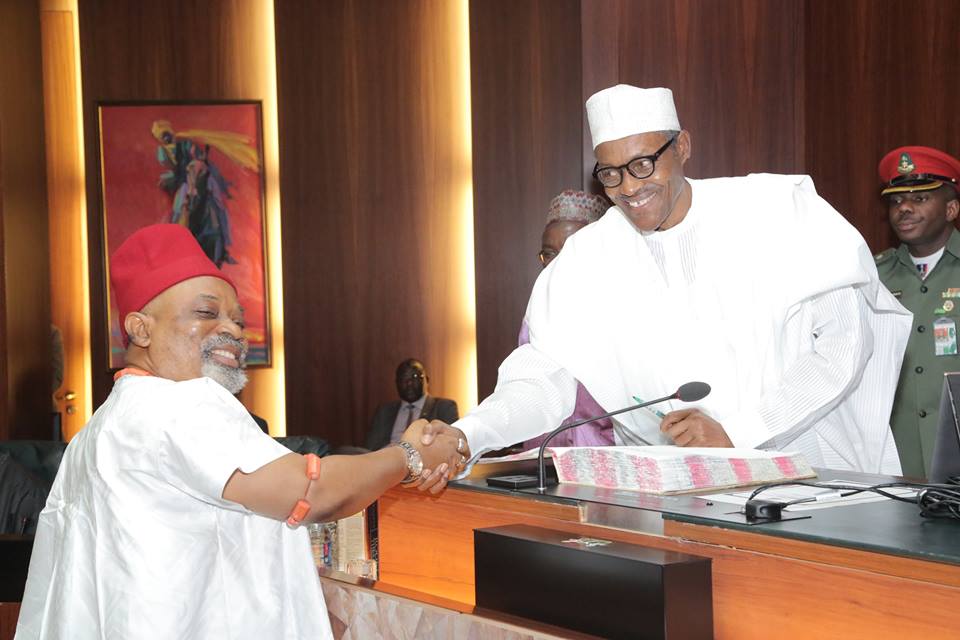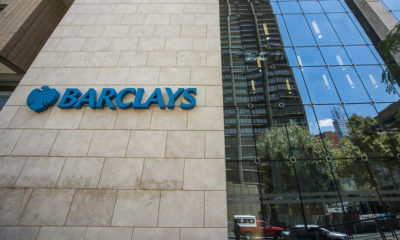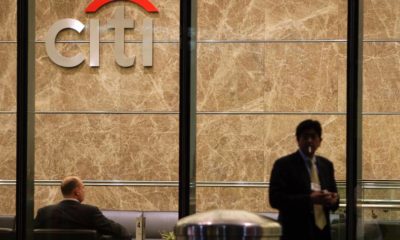- FG Set Deadline For Minimum Wage Negotiation
President Muhammadu Buhari has set a deadline for the implementation of the new national minimum wage, according to the minister of Labour and Employment, Chris Ngige.
The minister made the statement when he received the leadership and members of the Labour Correspondents Association of Nigeria (LACAN).
He said, “It is a pity that after signing it, May came and a lot of us were sent on compulsory leave. We are now coming back from the leave. If you remember, a committee was set up and I was a member. When we left, the Permanent Secretary took our place and were negotiating with the Joint negotiating council on the consequential adjustment”.
“The states are waiting for that and it is not proper for us not to fast track that negotiation so that even the states will not have too much back log to pay when the consequential adjustment is concluded. We have our own budgeted for in the 2019 budget and we are going to also budget for it in the 2020 budget”.
“We are concerned about the states because some of the states are not proactive like us. So, the sooner we conclude at the federal level and the Joint Negotiating Councils, the states takes it from there and as we negotiate with the states, the better for everybody. If we spill this into next year, I am not sure how many states that will be able to pay the backlog which will lead us to another round of negotiation”.
“It is the determination of the President and this administration to fast track the negotiation on consequential adjustment. I have just received a correspondence from the Chief of Staff to the President and we are putting a deadline to that negotiation. We are fast tracking it because the government will also want to put in place a Presidential committee on salaries and allowances that will be able to take request after this consequential adjustment”.
“Before then, that same committee will appraise the level of work load and evaluate all cadre of work and come out with salaries and allowances commensurate with each. It is one of the things that the government has decided and I have just seen the correspondence. When the details are out, we will let you know”.
“That is to show workers both in the public and private sector that this government is labour friendly and we want them to be in the decent work world.”
Ngige explained that his ministry focus has been to prevent job loss especially in the oil sector, saying “We have seen the symptom called unemployment which are very visible.”
He added “When you hear about Boko Haram, that is one of the symptom, when you hear about banditry and IPOB, it is one of the symptom of jobless people. So, for me, the President has decided that we must fight unemployment. We have to fight because the indices are terrible and that does not call for cheers.
“We have to decide and wear our thinking cap and take our country away from the doldrums. The President is committed to recreating the middle class in Nigeria. He is committed to lifting at least 100 million people out of poverty and the only way if for our economy to improve. When our economy improves, we would dealt a big blow to poverty, social insecurity and also insecurity of lives and property. We have to make our country a better place because we cannot run away from that. We all have a collective responsibility.”

 Forex2 weeks ago
Forex2 weeks ago


 Naira1 week ago
Naira1 week ago
 Naira4 weeks ago
Naira4 weeks ago
 Company News4 weeks ago
Company News4 weeks ago
 Billionaire Watch1 week ago
Billionaire Watch1 week ago




 Naira2 weeks ago
Naira2 weeks ago




 Naira3 weeks ago
Naira3 weeks ago




 Naira1 week ago
Naira1 week ago






















